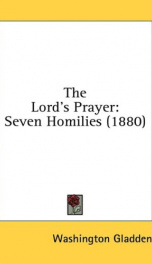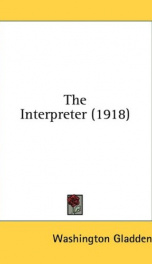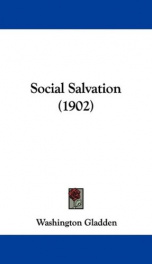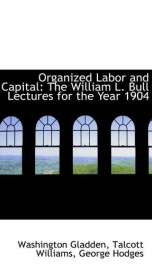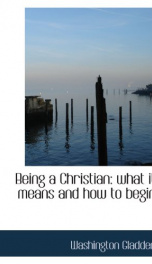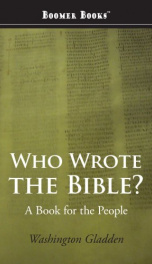recollections

Purchase of this book includes free trial access to www.million-books.com where you can read more than a million books for free. This is an OCR edition with typos. Excerpt from book: CHAPTER III VILLAGE LIFE AND APPRENTICESHIP Beneath the shadow of dawn's aerial cope, With eyes enkindled as the sun's own sphere, Hope from the front of youth in godlike cheer Looks God ward, past the shades where blind men grope Round the dark door that prayers nor dreams can ope, And makes for joy the very darkness dear That gives her wide wings play; nor dreams that fear At noon may rise and pierce the heart of hope. Algernon Charles Swinburne. I Have explained that the farm was to have been my home until my majority. For the fact that it was not so, my uncle was mainly responsible. It was he who had kindled in me other ambitions. By the time I was sixteen years of age he became convinced that my aptitudes were leading me in other directions, and it was his own proposition that I seek for work in which they could find development. My judgment welcomed his counsel, but my heart shrank from it; I could not easily turn my back upon a home which, with all its hardships, had been very dear. Nor had I any definite plans of study: I had dreamed of the law; and I tried to find a place in a lawyer's office where I might support myself by copying and have time for reading, but no such opening could be found. Finally, one day, my uncle returned from the village with the tidings that the editor and publisher of the Owego "Gazette" wanted a boy, and that I couldfind occupation there. I sought that place, and was soon installed as a printer's apprentice. It was a heavy heart that I carried away from the farmhouse, with the little trunk that held my few belongings, and the unpainted writing-desk which, on rainy days, I had constructed with my own hands. The homely picture, "Breaking Home Ties," which touched so many hearts at the Chicago Exposition, tells a story wh... --This text refers to the Paperback edition.
Info about the book
Author:
Series:
Unknown
ISBN:
0548065888
Rating:
2.5/5 (3)Your rating:
0/5
Languge:
English
Users who have this book
Users who want this book
What readers are saying
What do you think? Write your own comment on this book!
write a commentif you like recollections try:
Other books by this author
Do you want to read a book that interests you? It’s EASY!
Create an account and send a request for reading to other users on the Webpage of the book!

